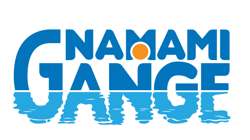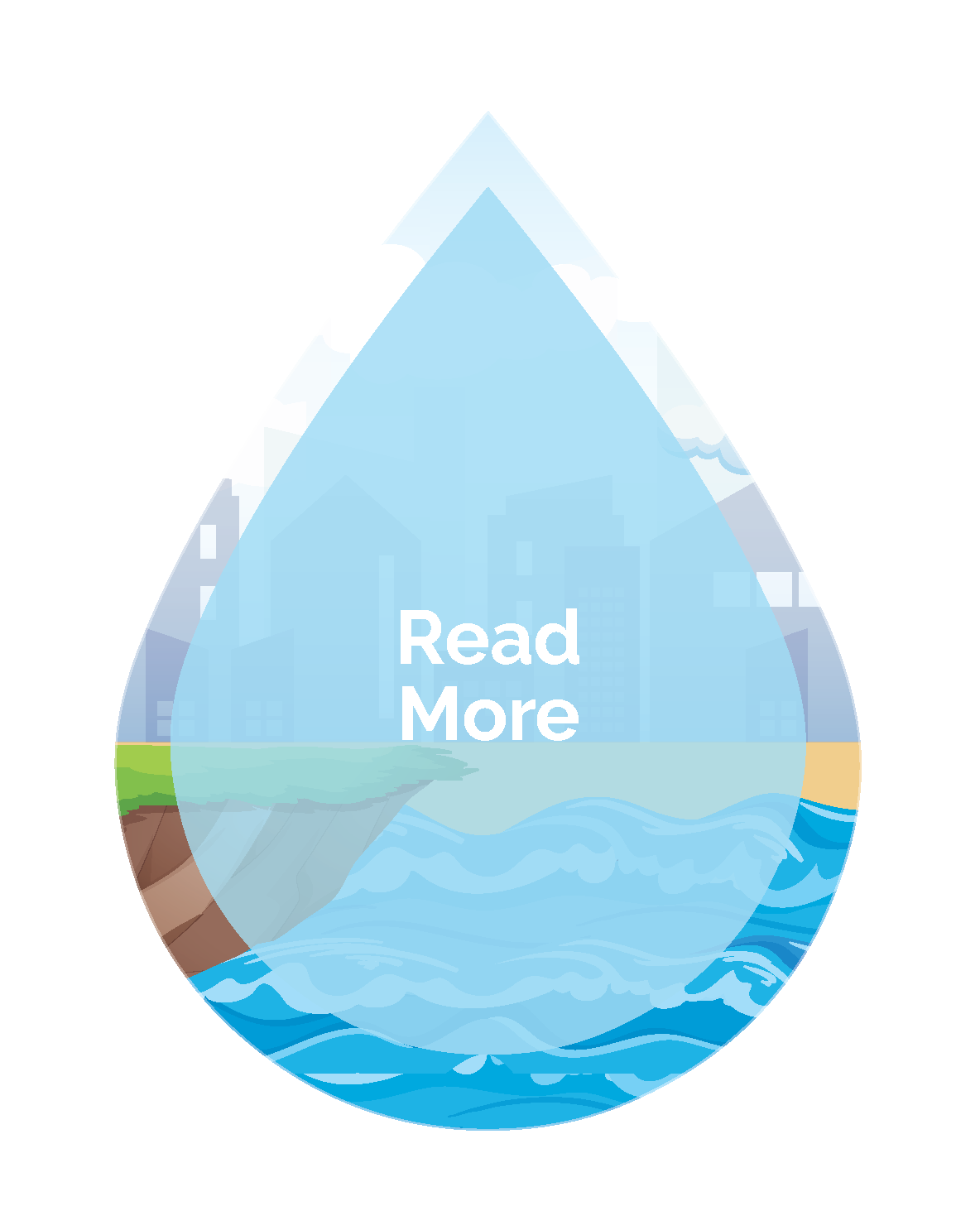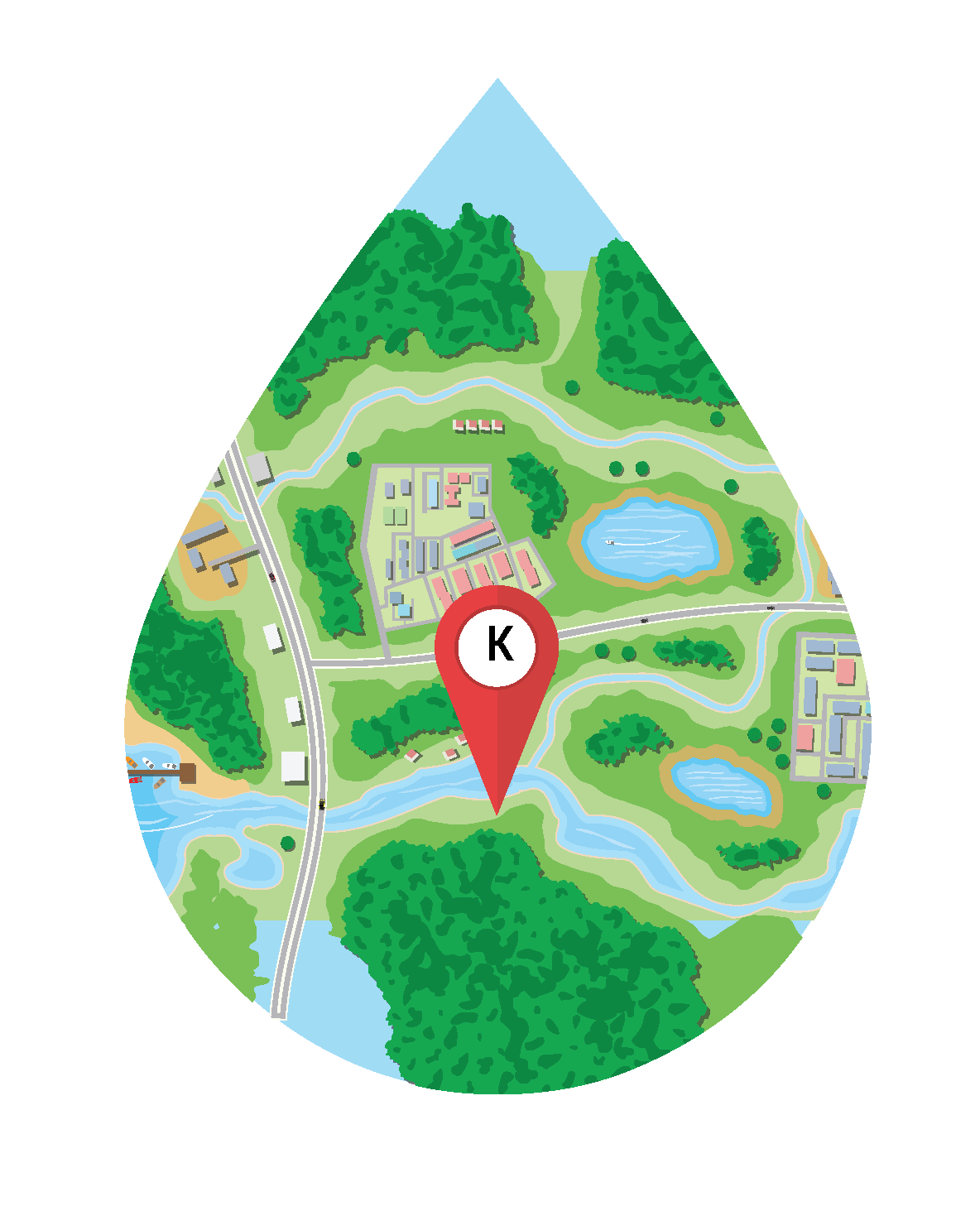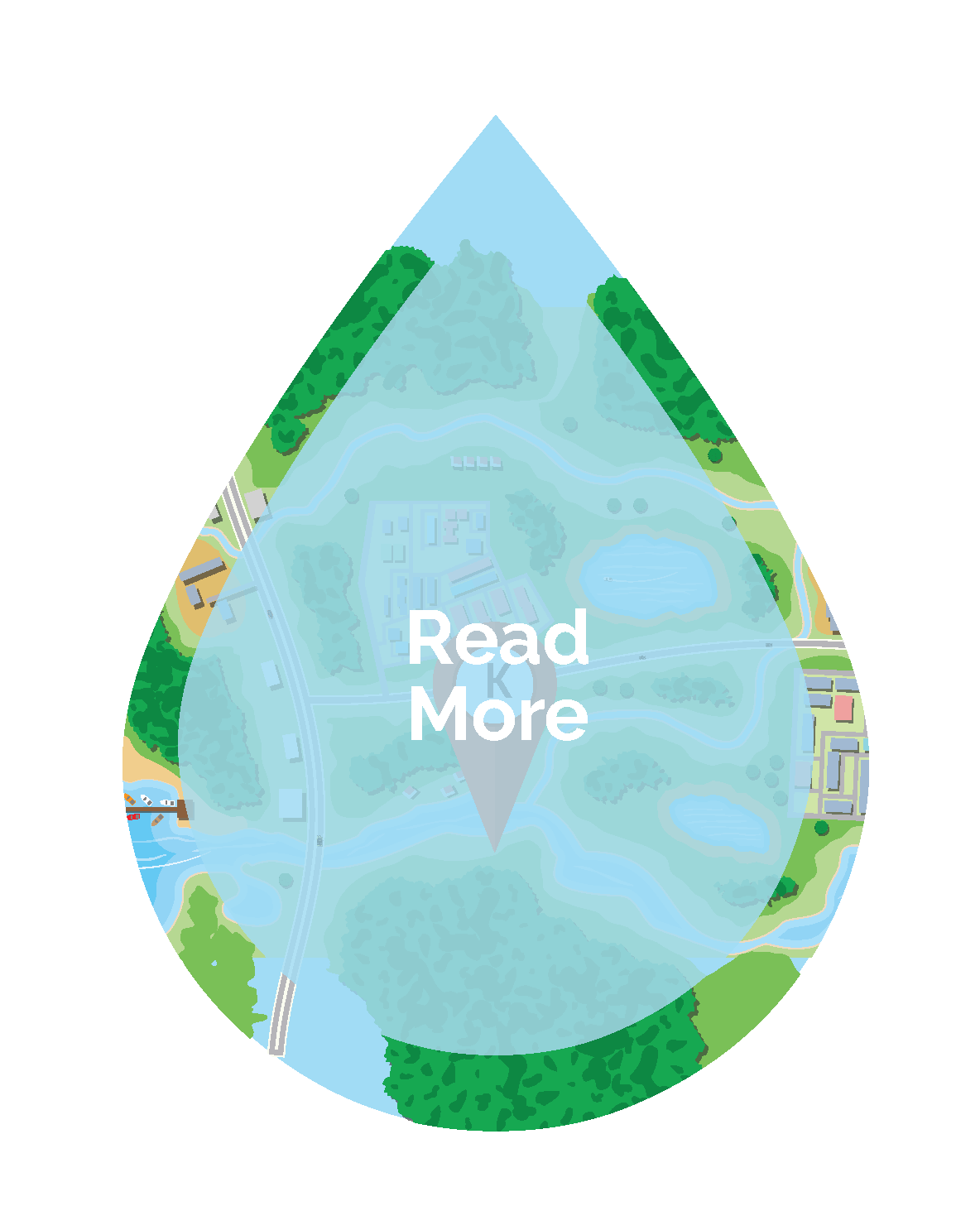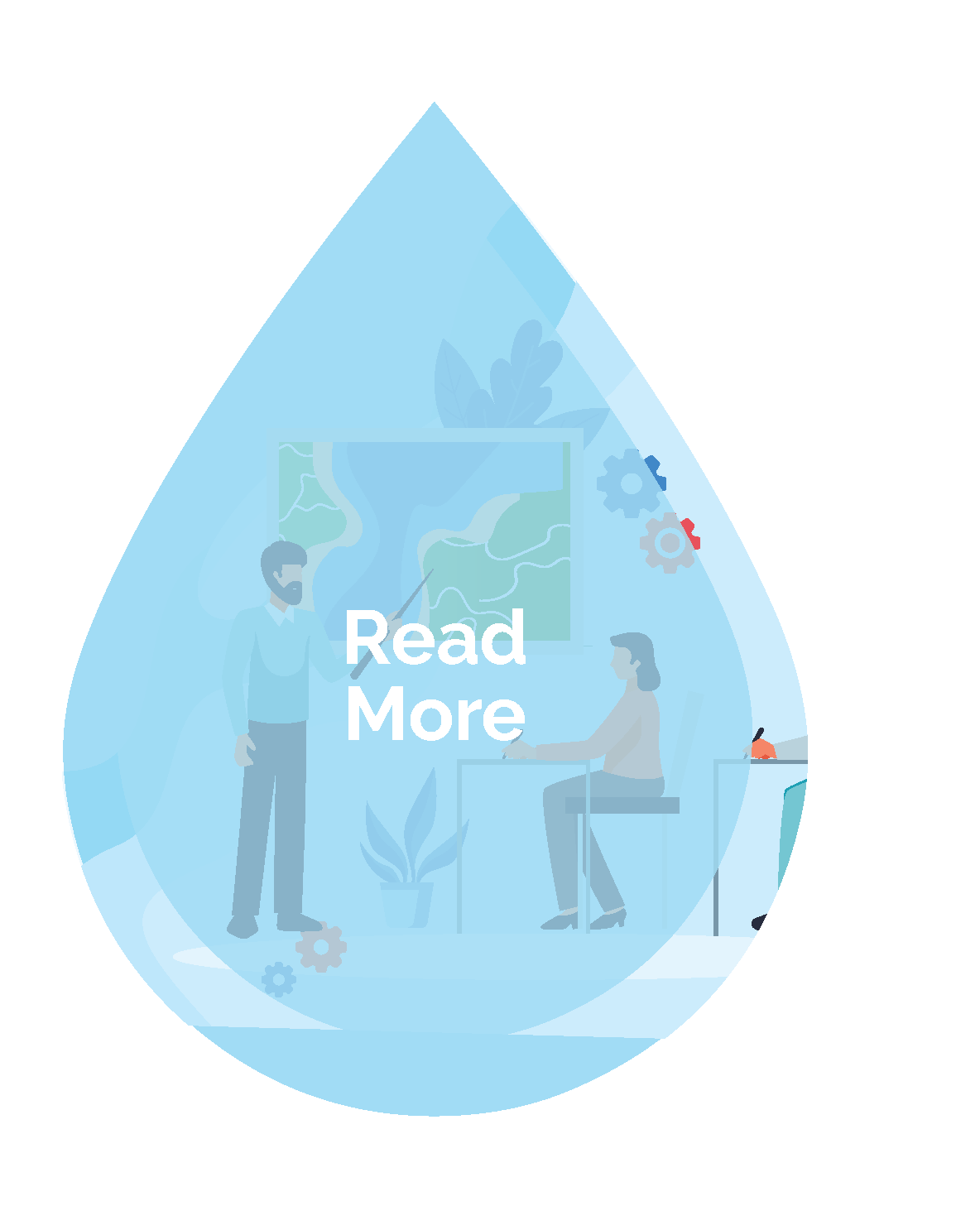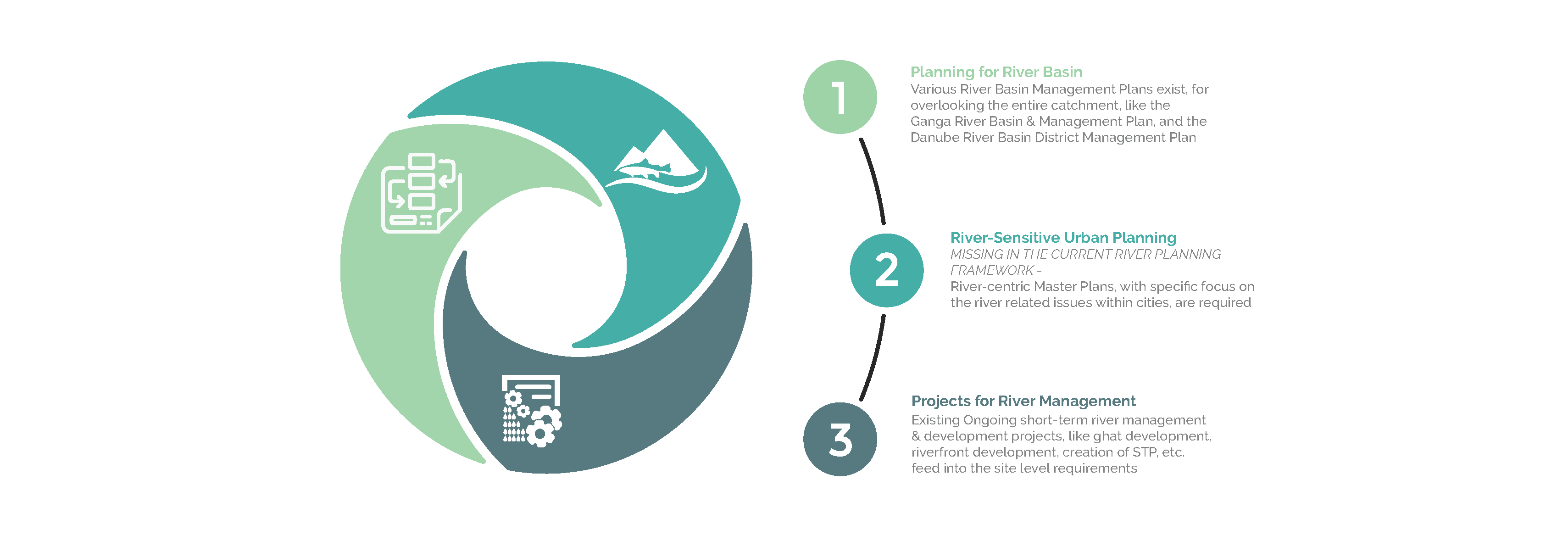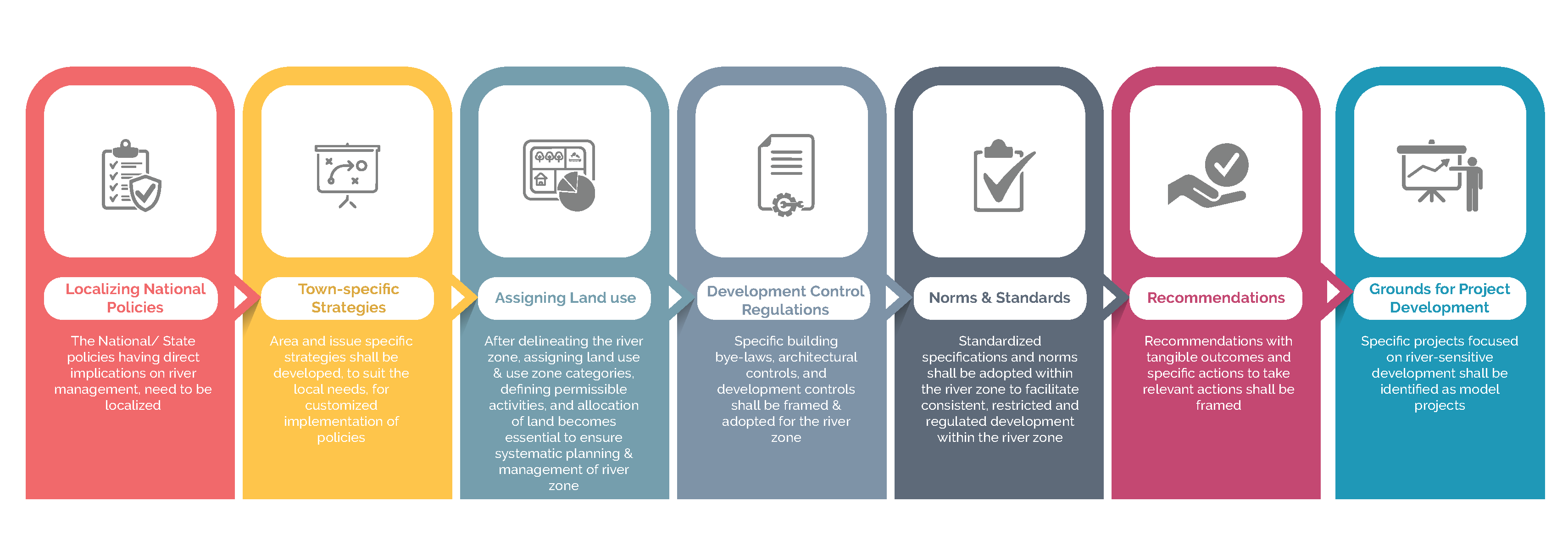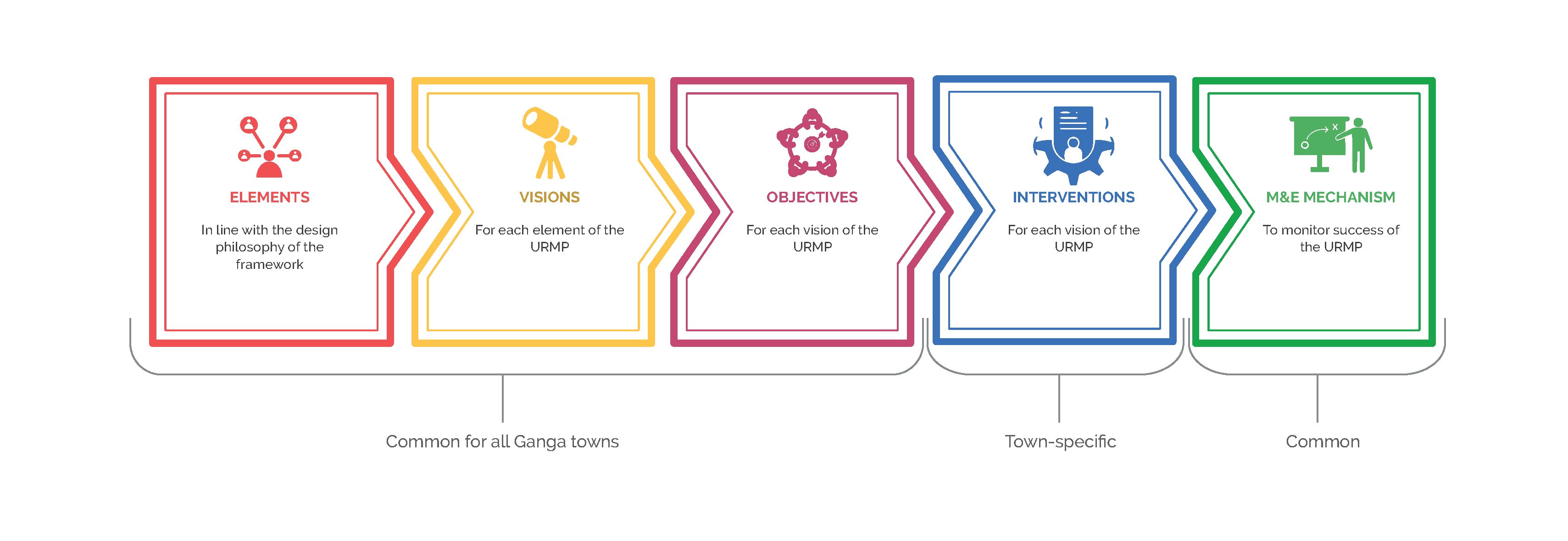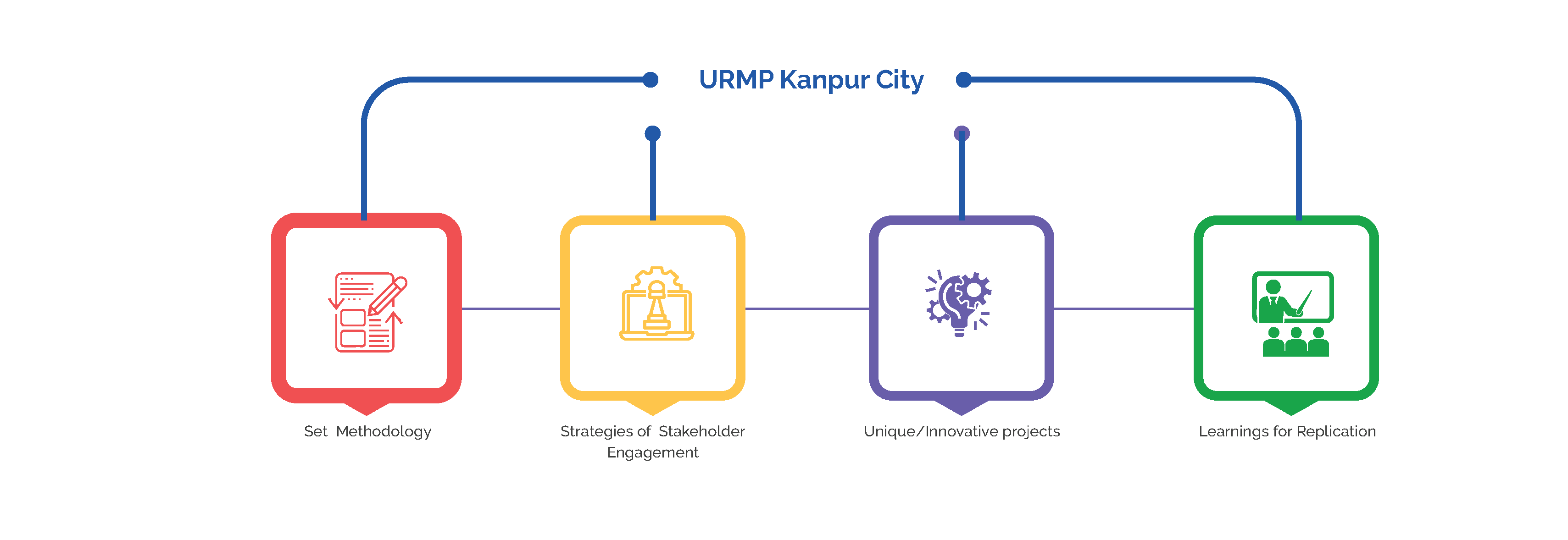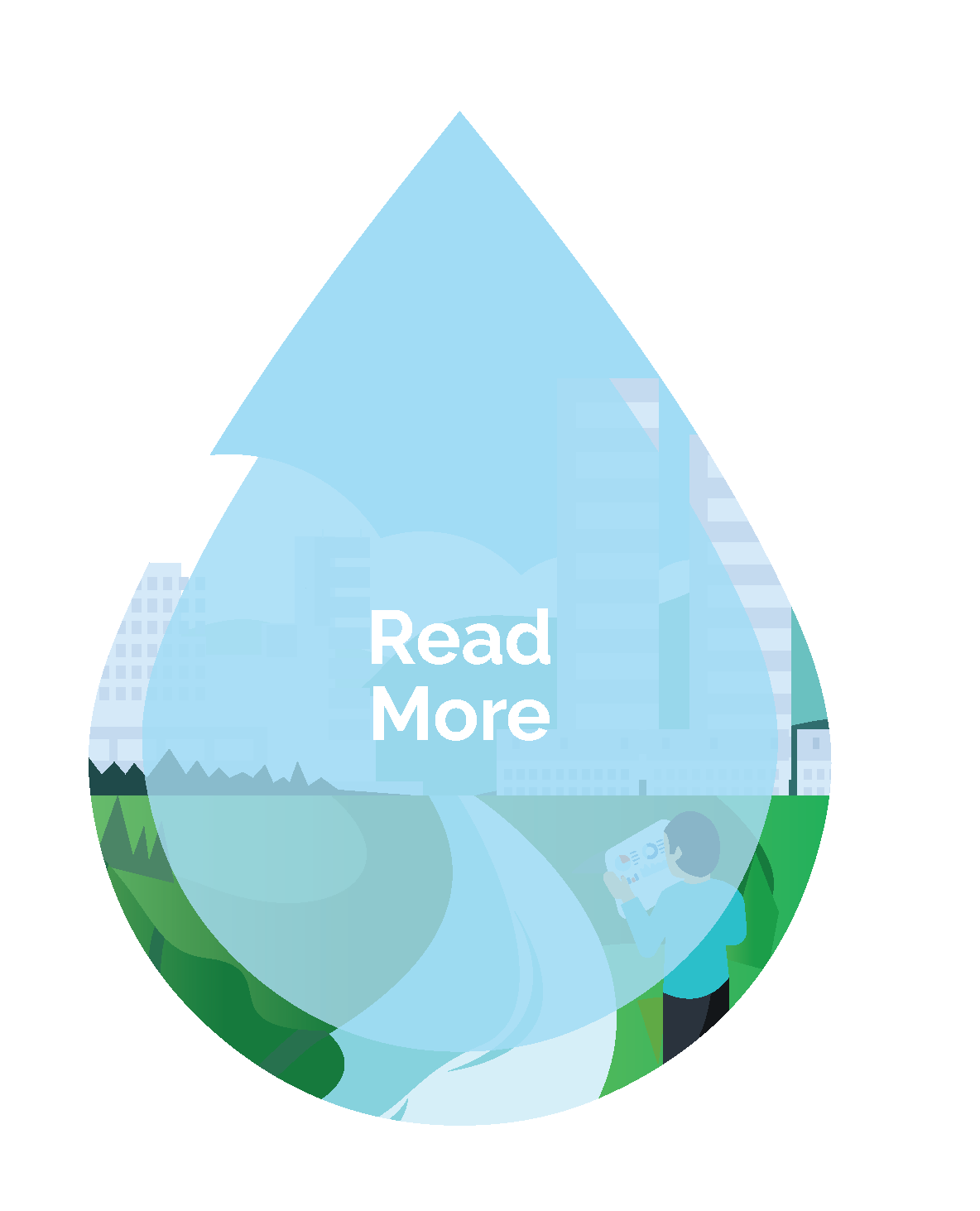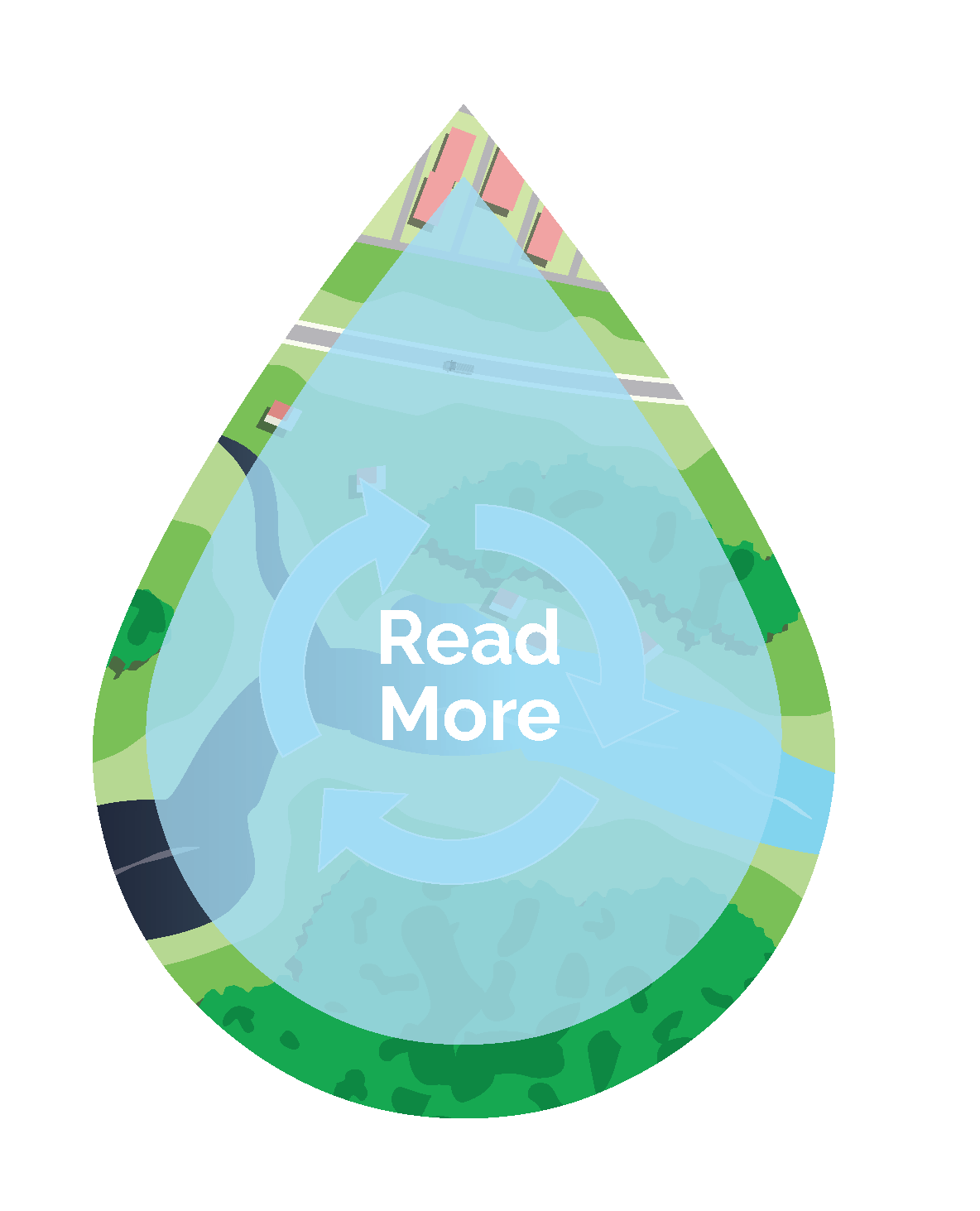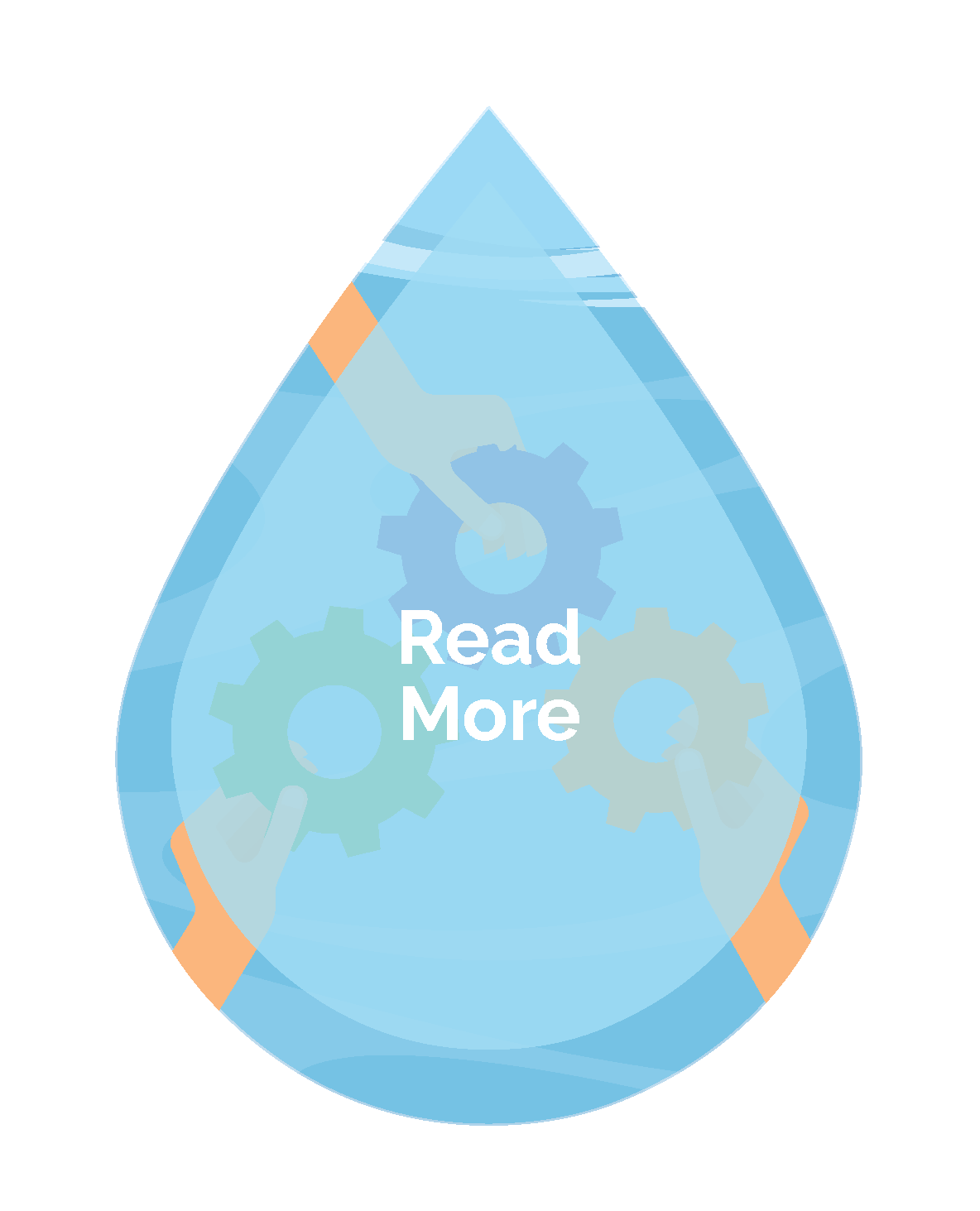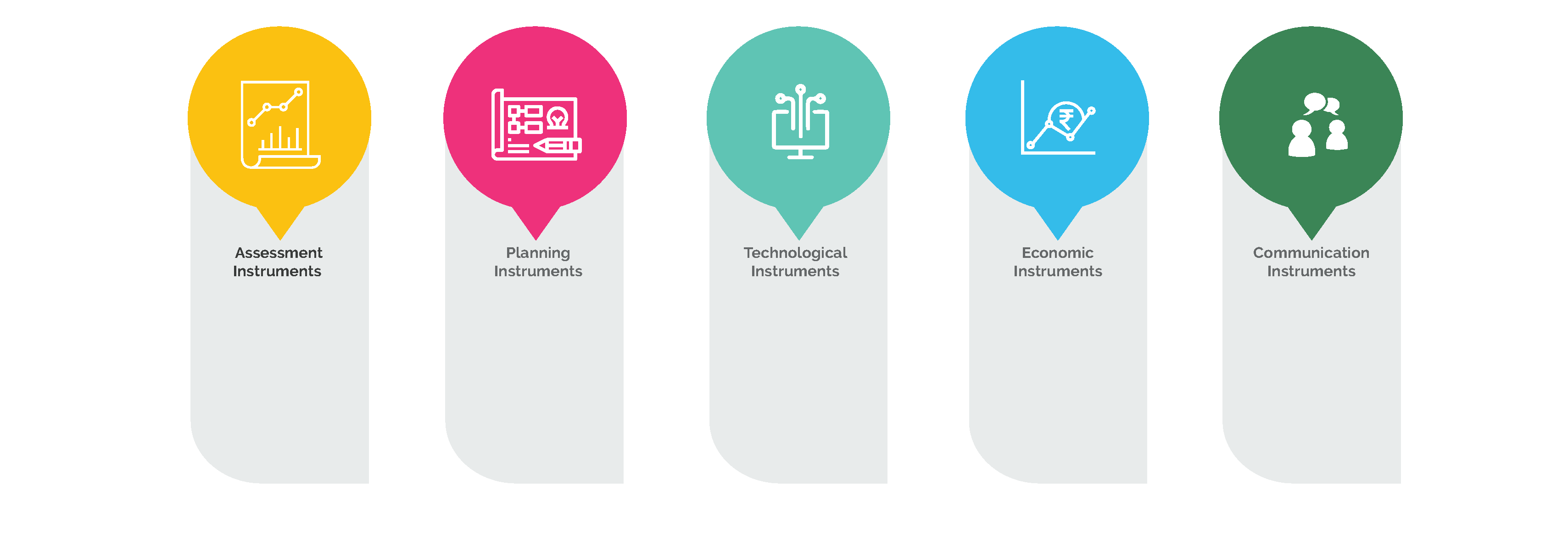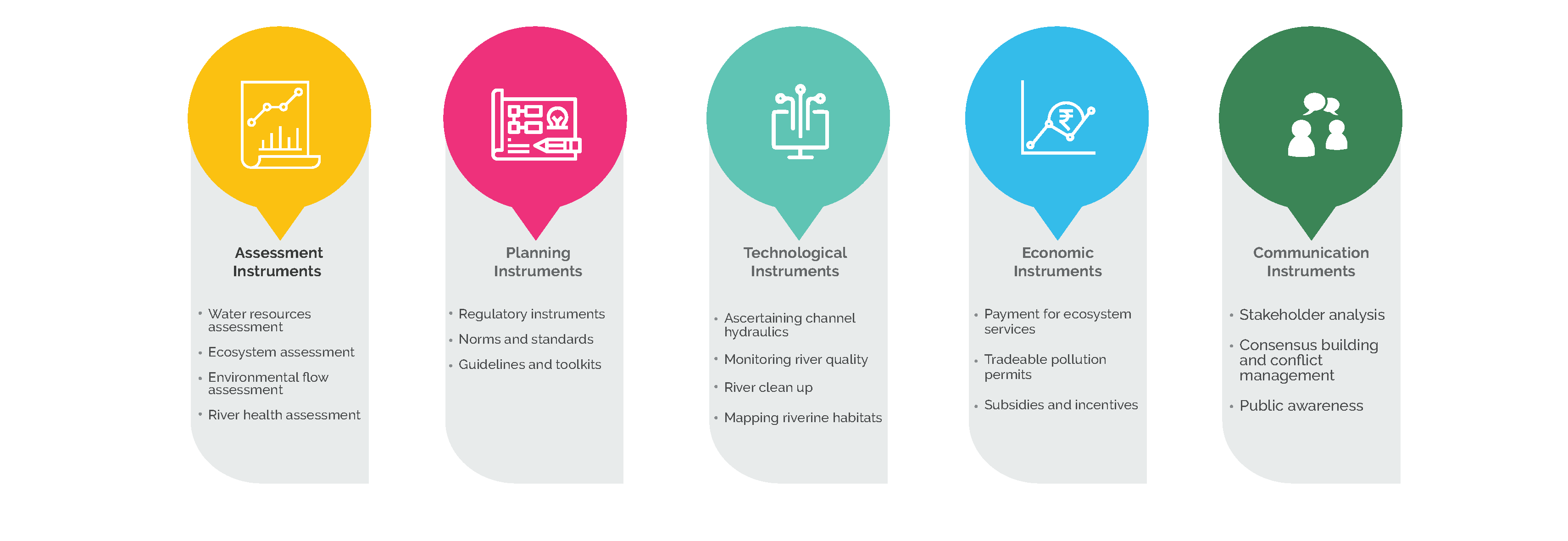PROJECT THRUST AREAS

River-Sensitive Planning
Produce a strategic guidance note to help cities mainstream river thinking into city planning.
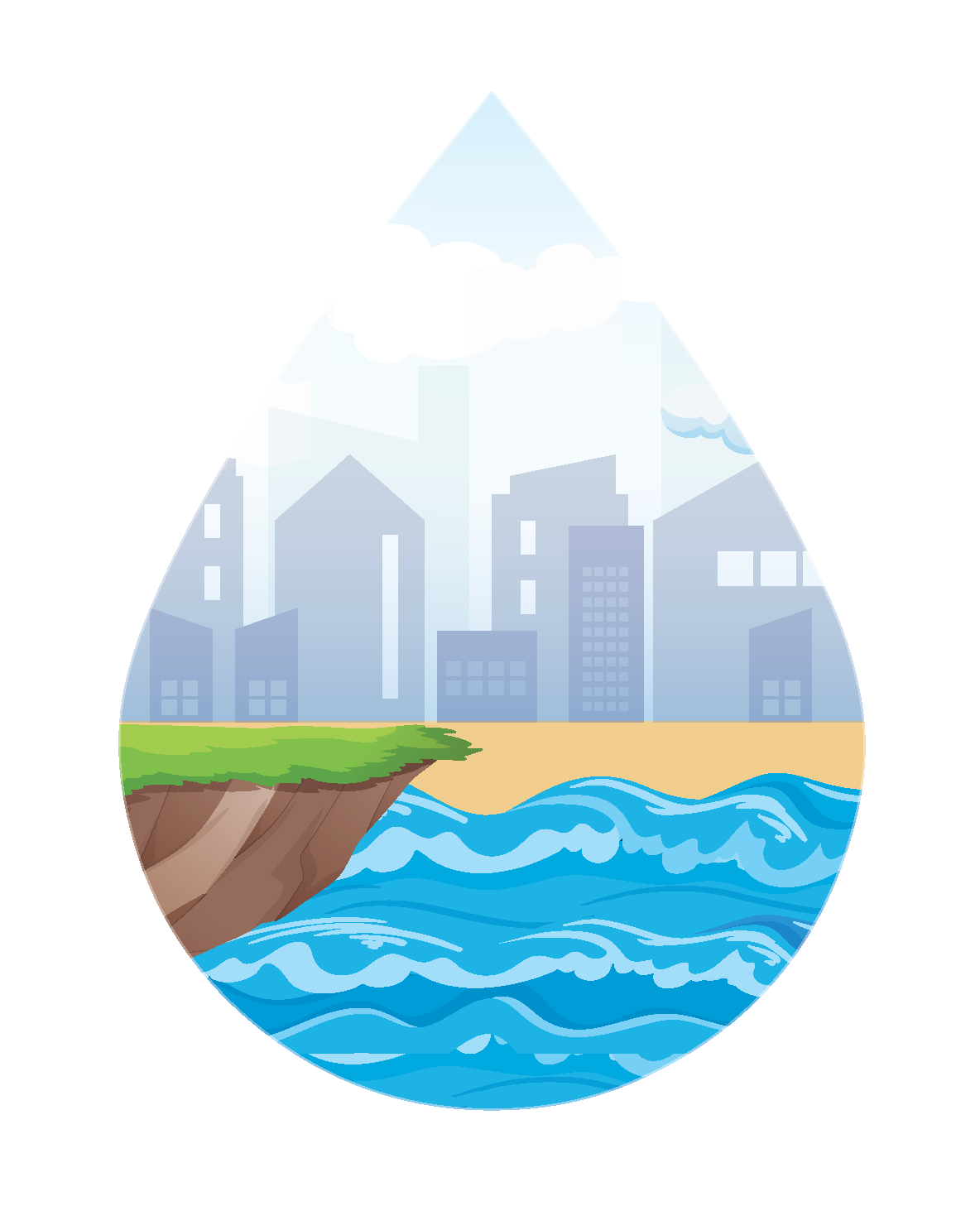
Urban River Management
Develop a common framework for an Urban River Management Plan (URMP) that cities can use to develop their own river-specific management plans.
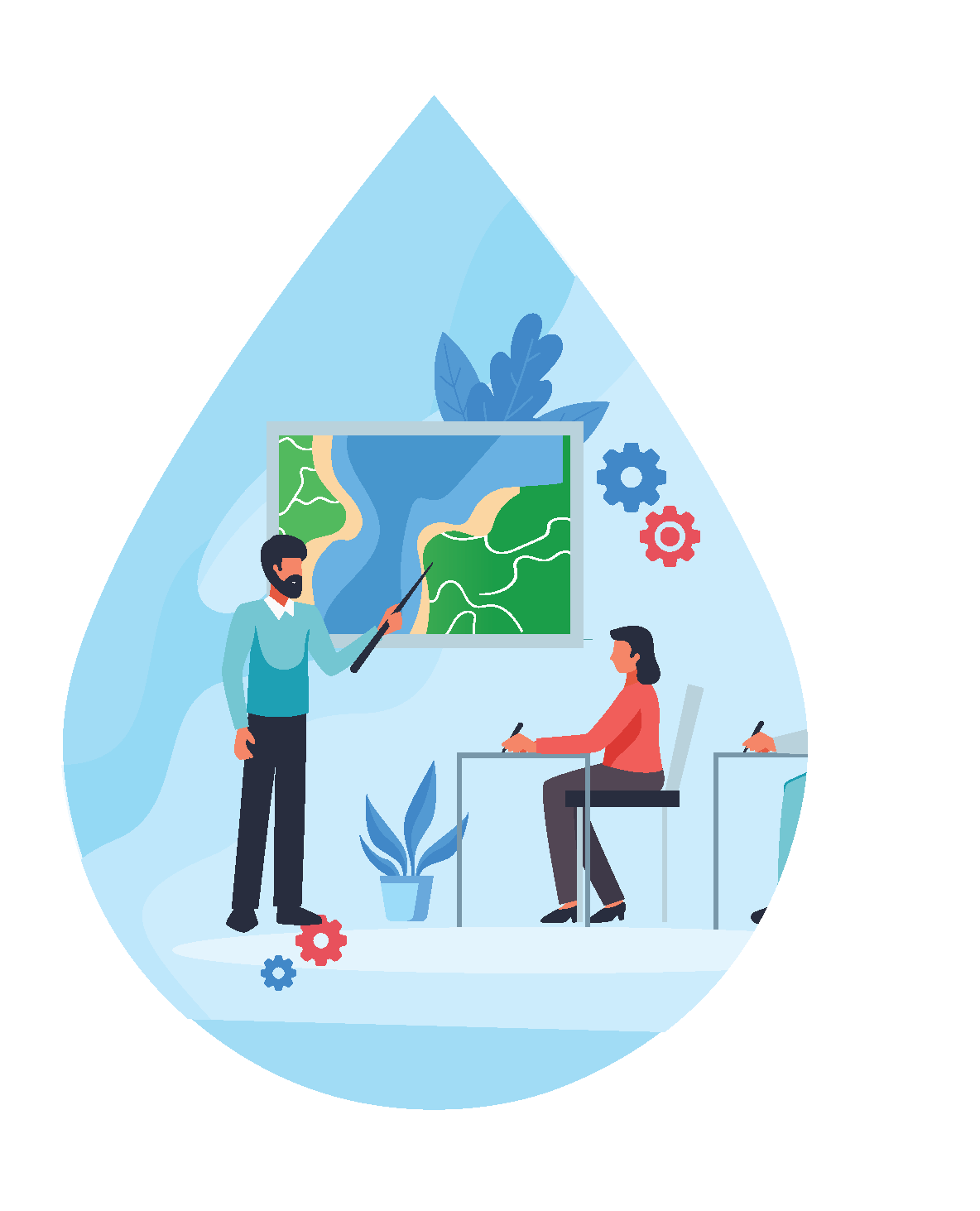
Capacity Building
Build capacities of relevant stakeholders in various facets of river management.
RIVER-SENSITIVE PLANNING
RIVER-SENSITIVE PLANNING
Strategic guidance to help cities mainstream river thinking into long-term city planning
”Seeking a paradigm shift, with river-sensitive Urban Planning”
Mainstreaming Urban River Management into a city’s Master Plan
Presently river-sensitive approach in India is understood in a piecemeal manner, primarily in the form of River Basin Management Plans and short-term River Management & Development Projects. However, the urban planning framework has to be made more robust, to address city-specific river challenges. Also, the long term thinking of any river city needs to be moulded into a more river-centric approach. This can be attempted by mainstreaming Urban River Management into a city’s Master Plan. This ensures leveraging on the existing urban planning framework and not building a new set of plans as a burden for these river cities. The core idea is to bring urban rivers to the heart of urban planning.
Why Master Plans?
- These are statutory instruments aimed at controlling, directing and promoting rational development of urban areas, while achieving maximum economic, social and aesthetic benefits.
- These documents are prepared by organizations reporting to the state and rivers are a state subject. Thus the Urban River Management has a natural complementarity with the Master Plans of cities.
- These are legally binding documents, having an enforcement mandate and a statutory backing, making the authorities accountable for their actions. Leveraging on these plans for river development initiatives would thus mean more action-oriented planning.
- The scope of these documents entails the capability of resolving social/ economic/ cultural/ environmental conflicts, that is essential for restoring the wholesomeness of rivers within cities.
Role of Planning Tools in addressing Urban River Management
Certain planning tools are efficient means for incorporating river thinking within the Master Plans. With the help of these seven tools, each city can responsibly derive specific solutions for their urban river challenges. These tools attempt to reflect upon the planning methodology falling within the purview of the Master Plans.
What is URMP?
Urban River Management Plan (URMP)
An integrated approach to manage the river and its associated elements in a city sustainably
”A unique framework, first of its kind, attempting river-centric Urban Management”
Philosophy of the framework
What is URMP?
- It is a plan that addresses diverse and multiple aspects of river management in a holistic and systematic manner.
- The concept of URMP was introduced by a consortium of 7 IITs (Indian Institute of Technology) who were tasked to develop the Ganga River Basin Management Plan. As per the plan, all the 97 Class 1 towns along the main stem of the Ganga are expected to develop their own URMPs.
- To support these towns, this project has developed a common framework for the URMP. The framework is quite unique because while it is generic, it still captures aspects that are specific to each town. This is pioneering piece of work in the sense that it is for the first time that such a framework (equivalent to a decision support system) has been developed to manage urban areas within a basin.
Philosophy of the Framework
The URMP framework is based on the three pillar of sustainable development—Economics, Social, and Environment. Hence, it is envisaged that the interventions carried out under the URMP will be :
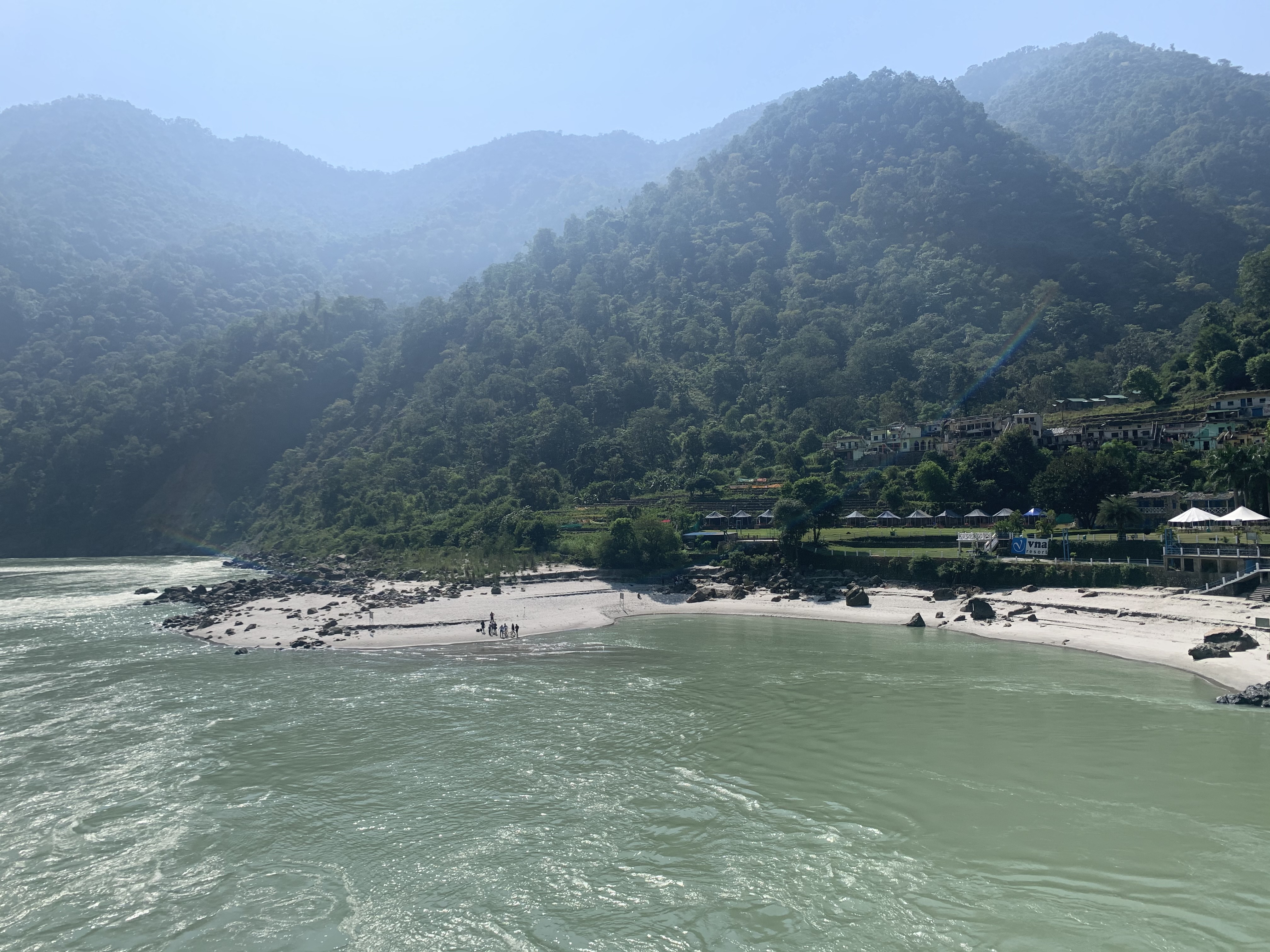
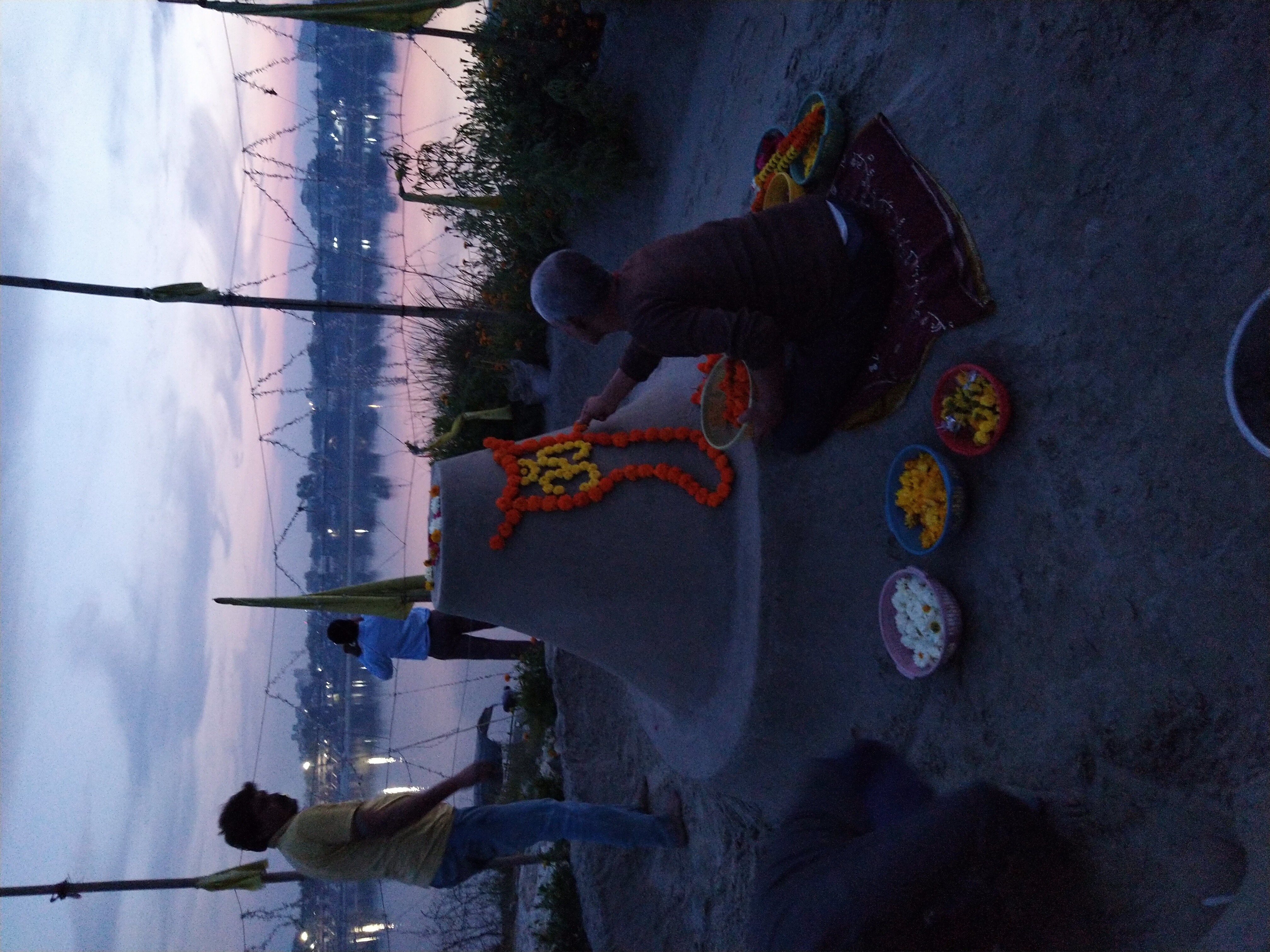
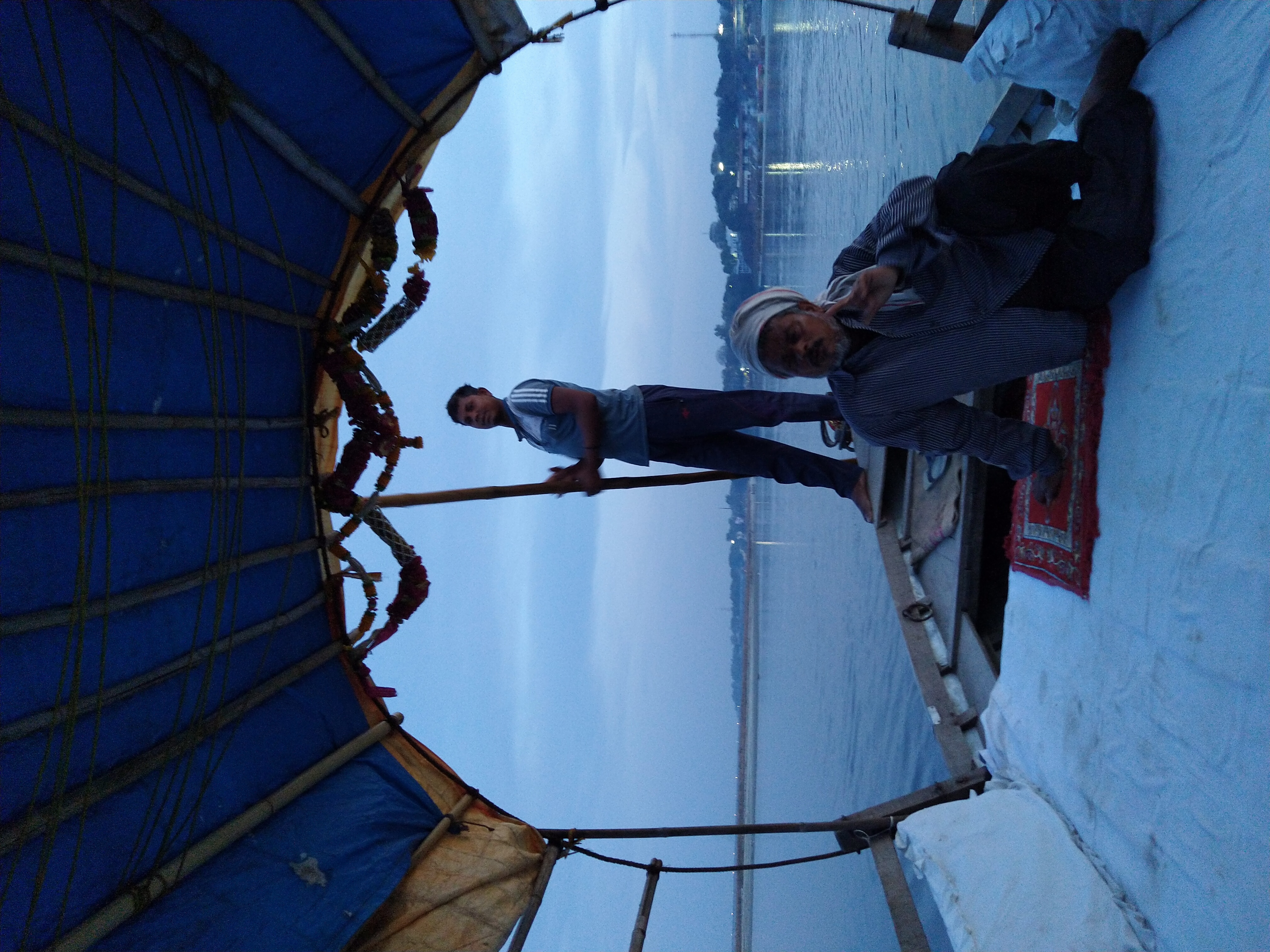
Structure of the Framework
This URMP framework, with its generic part including the elements, visions, objectives, and M&E mechanism that is common for all Ganga towns, and its town-specific part comprising the interventions required to achieve the objectives, is applicable in all river towns. These towns have the flexibility to choose appropriate interventions to suit their local context in order to meet the common objectives.
PILOTING IN KANPUR
PILOTING IN KANPUR
An Urban River Management Plan (URMP) for the city of Kanpur
”First experience at implementing the URMP framework”
URMP Pilot Test – Kanpur City
URMP Pilot Test – Kanpur City
Why Kanpur City?
- The city is located along main stem of Ganga, also bears historical significance
- It is famous for its Ghats; strong people connect is associated with some Ghats on holy occasions since historical times
- The city has strong presence of academic institutes, industries, social groups and communities which are key driving forces to promote URMP
- The city was also notoriously famous for polluting Ganga river through tannery industries and has initiated attempt to improve the business as usual scenario
URMP Pilot Test – Kanpur City
- Set a methodology to prepare a model URMP owned by the urban local body
- Indicate strategies for involving multiple stakeholders
- Identify unique/innovative interventions to address local problems for urban river management
- Provide opportunity for key learnings and possible challenges while preparing URMP with multiple stakeholders
CAPACITY and BUILDING
CAPACITY BUILDING
Building capacities of relevant stakeholders in various facets of river management
”Advancing the locally existing capacities to catalyse the transformation”
Building-up the locally existing capacities to catalyse the transformation
Upgrading capacities of ULBs and other stakeholders in the Ganga River Basin on a continuous basis is of paramount importance in order for them to keep abreast with emerging issues affecting river health, and proactively respond to those. The project targets three specific capacity-building modules.
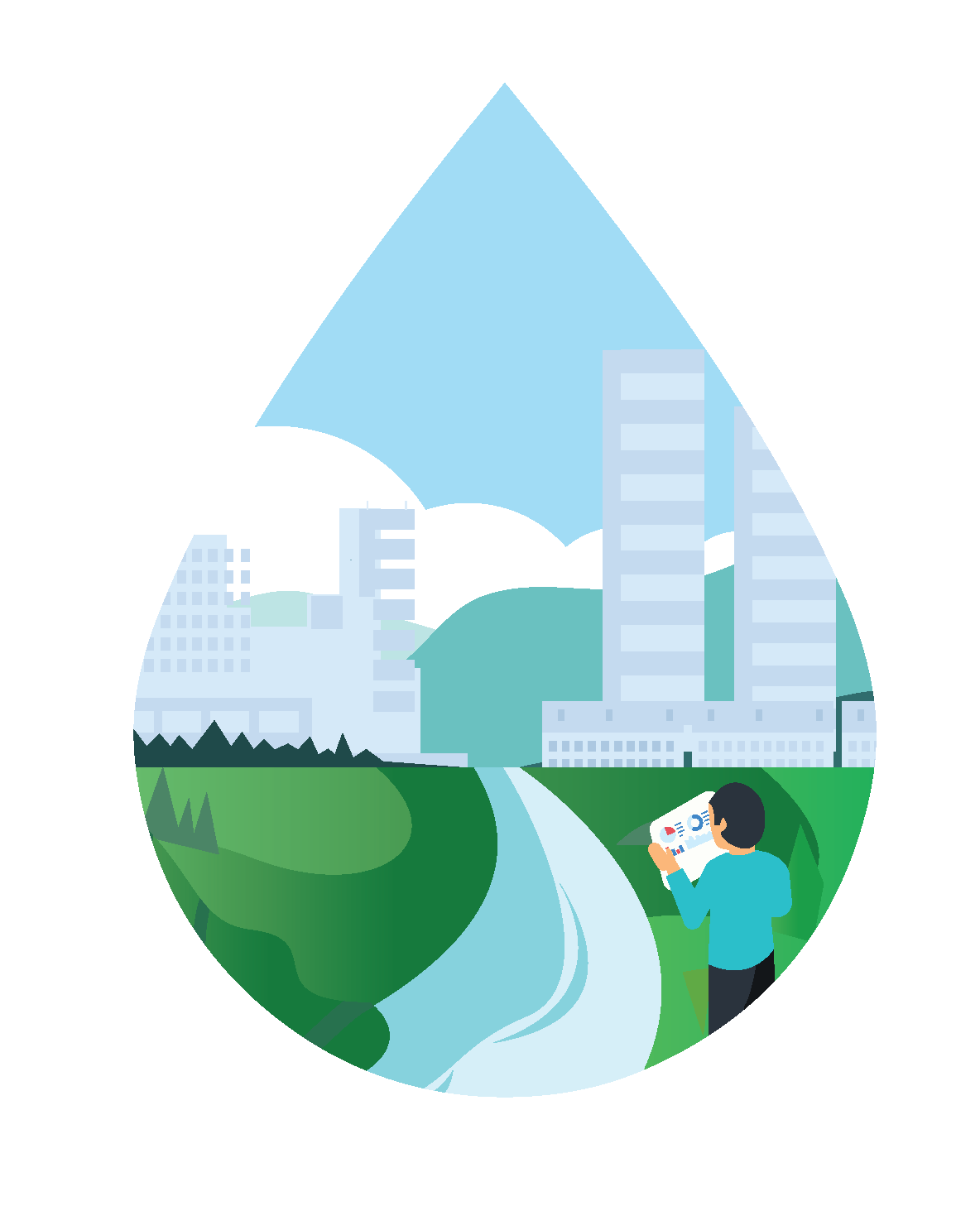
Sensitization Programme on
Managing Urban Rivers
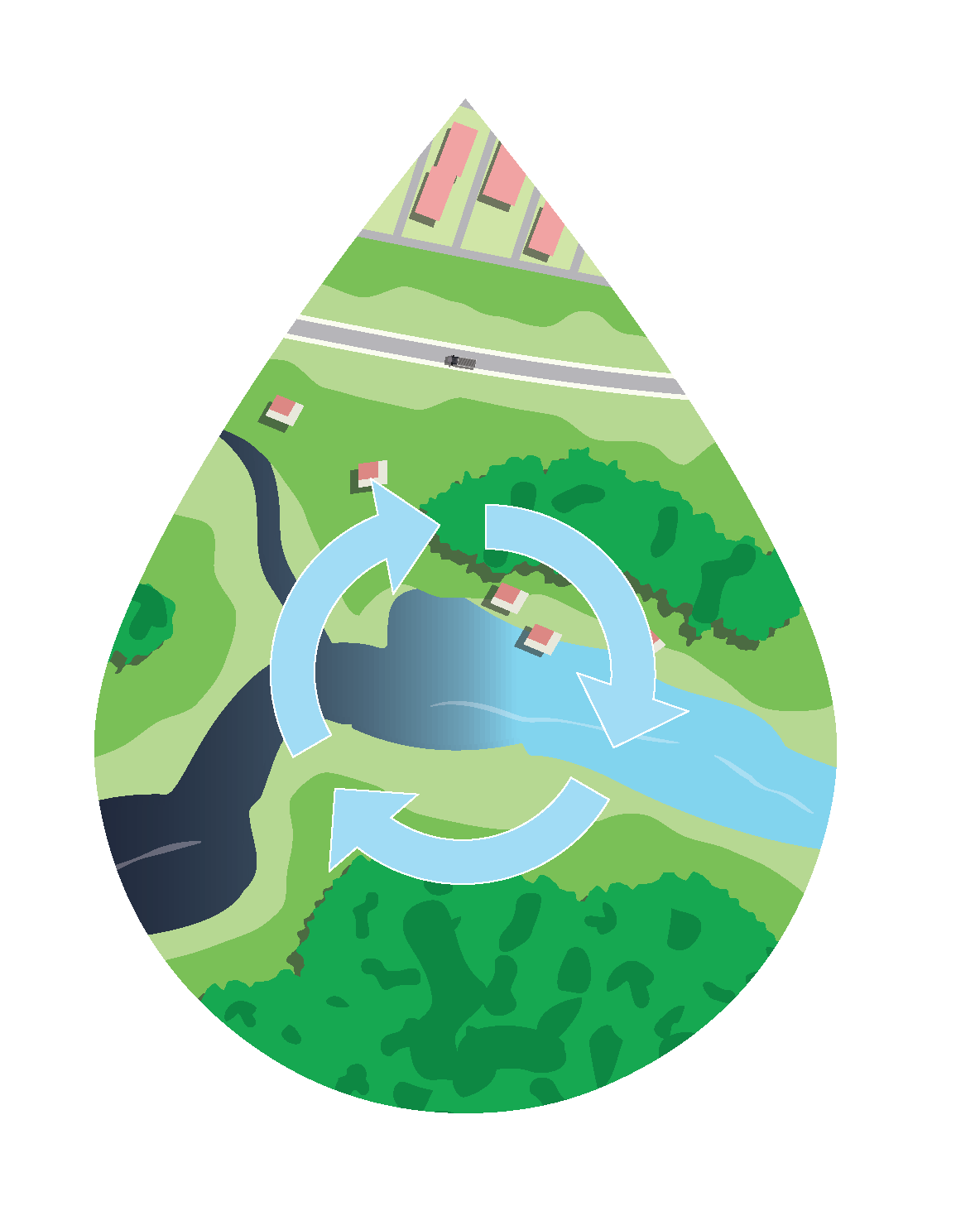
Training Programme on
Technology/ Policy Perspective Framework for Waste Water Management in Ganga River Basin Towns
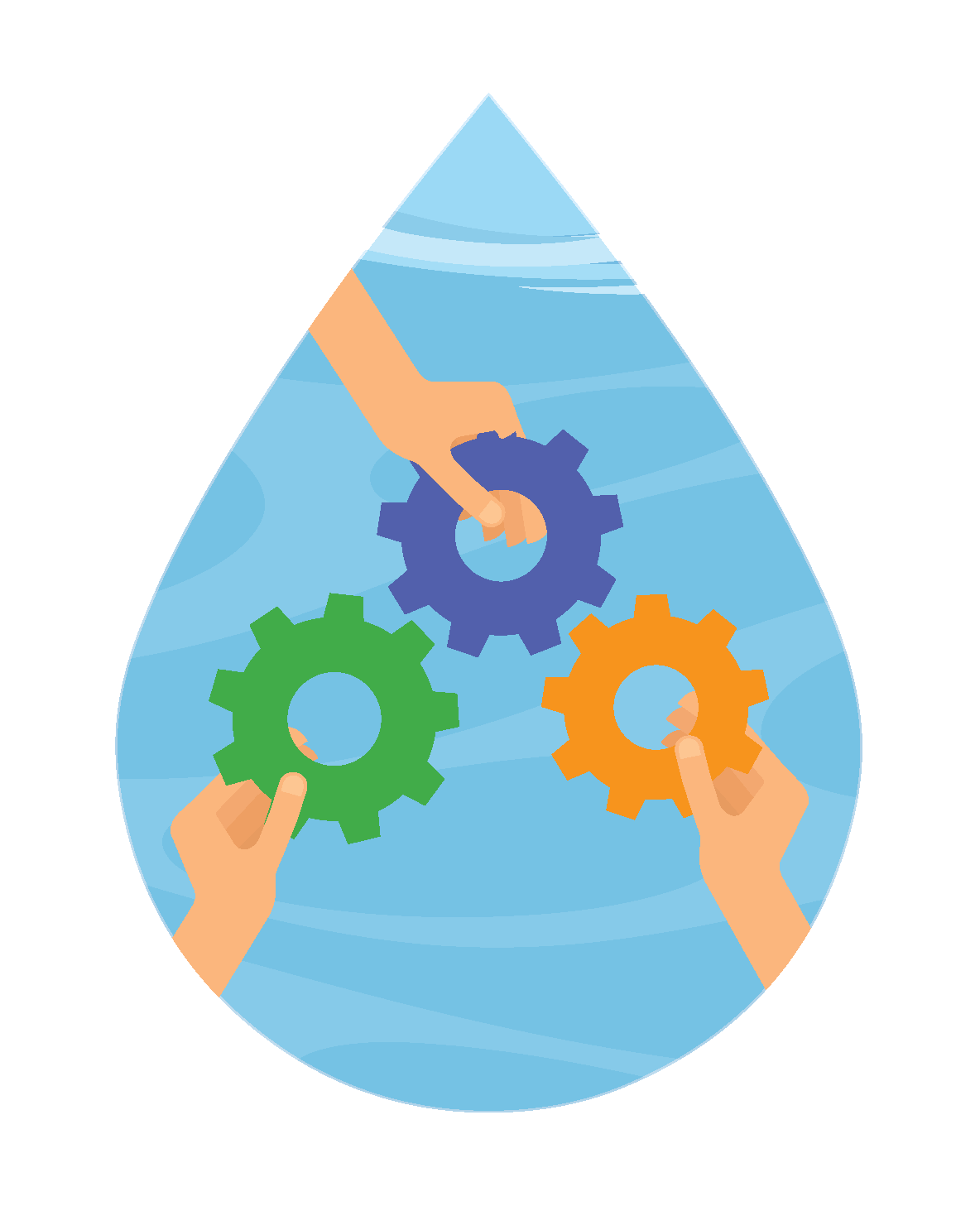
Training Programme on
Instruments for Urban River Management
Sensitisation on Managing Urban Rivers
Cities that have rivers flowing through them are very fortunate. The URMP is essentially to enhance the outlook of such cities. Every activity carried out under the URMP will only benefit the citizens and ultimately lead to improved quality of life. This training programme is being arranged to sensitize the stakeholders in various cities about the URMP framework and its application within their city.
Aim of the Training
The main aim of this programme is to trigger some thinking on river-sensitive planning and management among the participants.
Training Objectives:
This project has developed a framework for Urban River Management Plan (URMP) that the 97 towns along the main stem of the Ganga will use to prepare their own city-specific plans. This sensitization programme has been designed to help these towns understand the framework. It uses a step-by-step approach to take the participants through the various components of the framework, and helping them contextualize it to their own conditions.
Training Content:
- Understanding the need for managing urban rivers
- SWOT Analysis of the participating city
- Introducing the URMP framework
- Contextualizing the URMP framework to the participating city
- Addressing potential barriers and challenges
- Way forward and next steps
Training Outcomes:
It is expected that by the end of this programme, the participants will:
- Have a good understanding the benefits of the URMP for their city
- Have a working knowledge of the URMP
- Be able to contextualize the URMP framework to their cities
- Be aware of potential barriers and challenges for the URMP, and identify potential solutions specific to their city
Target Participants:
Senior engineers and managers from the relevant departments of Municipal Corporations; town planners from the Development Authorities; Parastatal Organizations; Forest Department; Irrigation and Flood Control Division; Tourism Department; and Local Academic and Research Organizations
Training Modules
Training on Waste Water Management
‘Namami Gange’ flagship program of Union Government has been working to accomplish the twin objectives of effective abatement of pollution, conservation and rejuvenation of National River Ganga. “Nirmal Dhara” (unpolluted flow) is one of the 7 thrust areas under which actions for reducing pollution entering the river are targeted. Some of the actions are upgrading of existing Sewage Treatment Plants (STPs), creating additional treatment capacities and abatement of industrial pollution. However, 100% coverage of towns/populations by centralized sewerage system may not be feasible given the topographical constraints and un-regulated spatial growth of towns
Urban Domestic Wastewater Management Systems for safe conveyance and treatment of domestic wastewater in cities can thus be provided by broadly two approaches. These systems are either conventional centralised sewer systems (also referred to as sewered sanitation) or non-conventional systems including on-site sanitation (also referred to as non-sewered sanitation) and decentralized systems.
Non-networked and decentralised wastewater management approaches (wherein the focus is on collecting and treating the waste at source or as near as possible to source of generation) can negate requirement of extensive conveyance infrastructure to transport wastewater to STPs and requirement of advance treatment technologies if liquids and solids in wastewater are collected separately and treated. Decentralised wastewater management approaches have not been a priority for administrators and engineers and has traditionally received less attention. Also, planning for decentralised sanitation solutions is different from centralised networked approaches and requires different approach/focus when it comes to technology, policy and institutional framework, finances and stakeholder engagement for effective implementation in an urban area. With recent policies and emphasis on dealing of waste from on-site sanitation, direction by central and state governments has provided mandate to ULBs to promote decentralised sanitation.
Presently, the capacities at ULB, Parastatal and State level is limited in this domain. It is the need of the hour to equip concerned stakeholders with knowledge and skill to implement effective solutions. With the central objective of enhancing the understanding of state and city officials on the role of decentralized sanitation systems in safe disposal of domestic wastewater and faecal sludge/septage generated in urban areas, two types of capacity building programs have been developed.
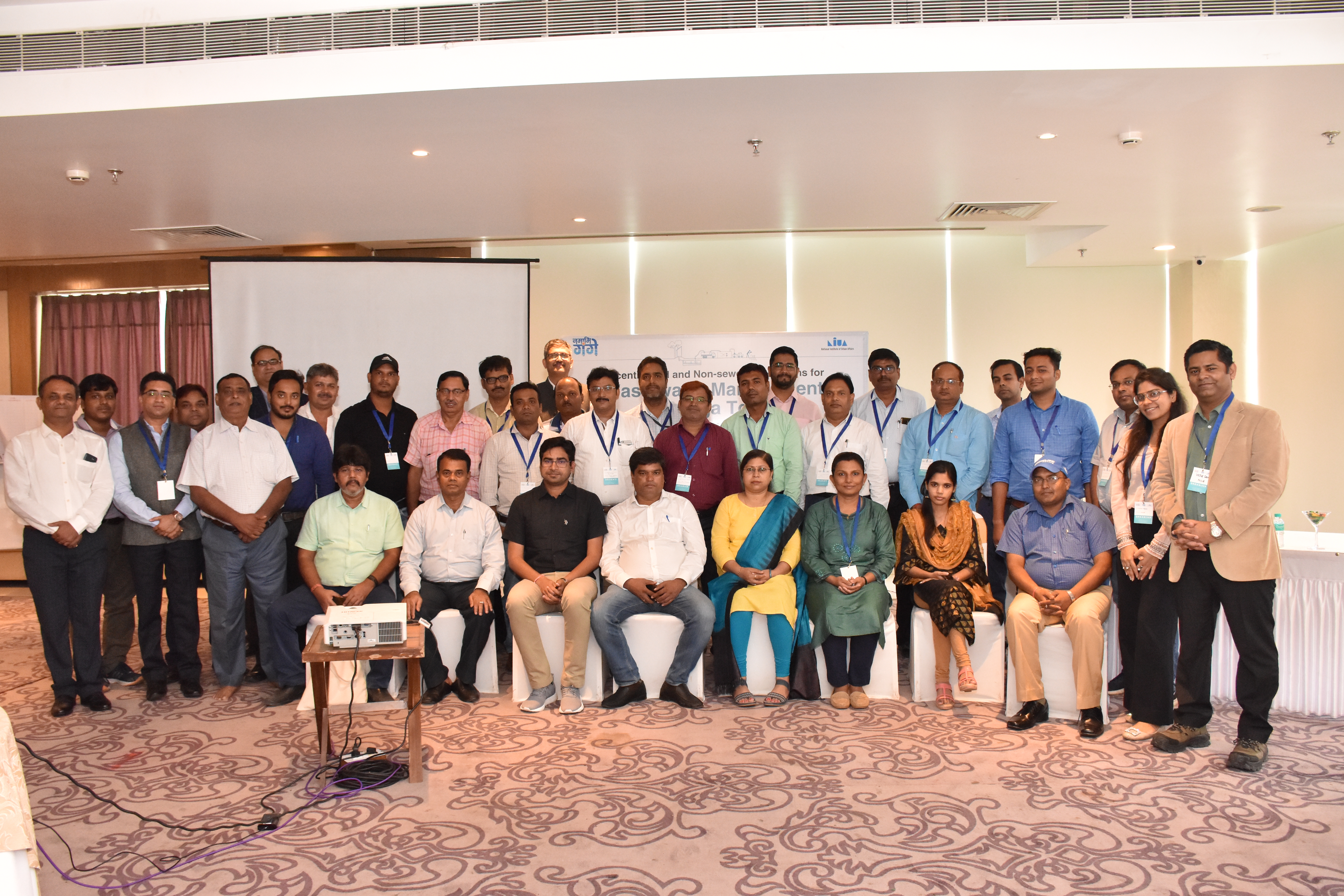
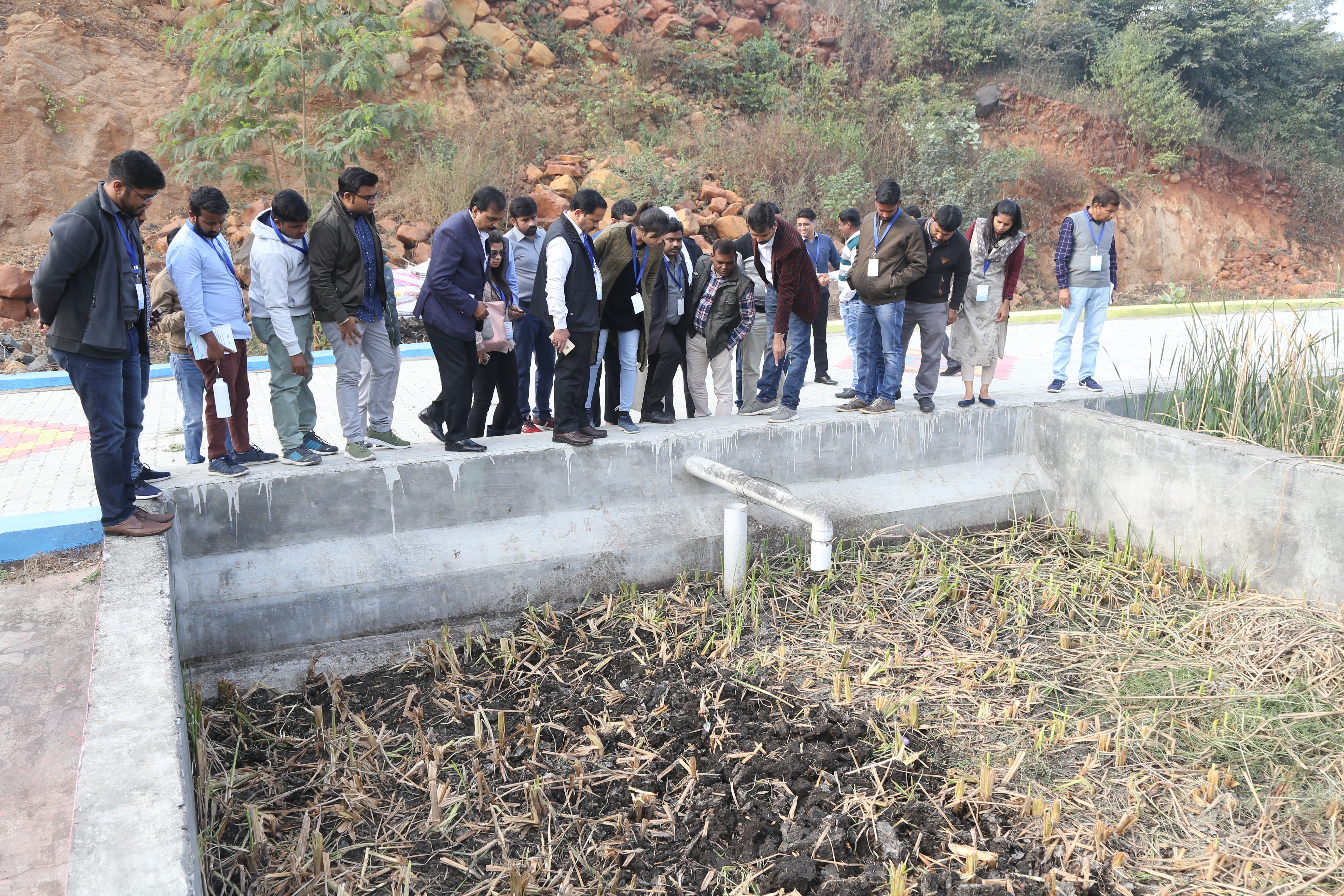
Aim of the Training
To provide city and town officials with an understanding of decentralised wastewater management approaches and its implementation to complement existing centralised networked systems in reducing untreated faecal waste entering rivers/water bodies.
Training Objectives:
- Appreciation of decentralized and non-networked treatment systems for septage and waste water
- Exposure to best practice and case studies of successful interventions implemented nationally and internationally
- Application of mapping tools for assessing septage generation and the affordability of scheduled desludging operations
Training Content:
- Urbanization and sanitation trend in India and challenges
- Status of wastewater management at National/Ganga towns and challenges
- Centralised Vs. Decentralised approaches for wastewater management – pros and cons
- Decentralised sanitation solutions for wastewater management in small and mid-towns – needs and challenges
- Introduction to Faecal Sludge & Septage Management – components, challenges
- National and International best practices in excreta management
- National/State level policies and programs for wastewater management in urban areas of India
- Exercises, Videos and Group work
Training Outcomes:
Upon completion of the training, participants should be able to:
- Understand and appreciate the need and role of decentralised sanitation solutions including FSSM in reducing the untreated faecal flows entering water bodies.
- Understand how decentralised approaches can complement conventional systems for wastewater management with an aim of achieving 100% coverage in cities and towns
- Able to make informed decisions and draw a broad action plan for 100% safe collection, conveyance, treatment and disposal of faecal matter in their respective ULBs.
Target Participants:
Officials from ULBs, Para State Technical agencies, Administrative and Engineering staff, Elected representatives, Consultants and NGOs
Aim of the Training
Decentralised Wastewater Treatment (DWWT) and Faecal Sludge & Septage Management (FSSM) in particular are emerging as potential solutions to the challenges of addressing safe excreta management resulting in protection of urban water bodies, which otherwise are being polluted by untreated waste discharges. The aim of this advance training is to develop a comprehensive understanding of decentralised sanitation systems that can complement conventional wastewater management approaches in safe disposal of domestic wastewater and faecal sludge/septage generated in urban areas.
Training Objectives:
- Understanding and appreciation of liquid waste management approaches with focus on decentralized wastewater treatment solutions including on-site sanitation
- Understanding of various technology options for decentralised liquid waste management including Faecal Sludge and Septage Management (FSSM)
- Application of tools/techniques for planning decentralised wastewater management in urban areas
- Role of State/ULB in planning/implementing decentralised sanitation solutions for effective wastewater management
- Exposure to live project to enhance understanding on decentralised sanitation solutions that can be adopted in ULBs
Training Content:
- Current status and challenges in urban wastewater management – National/Ganga Towns
- Decentralised sanitation solutions for wastewater management in small and mid-towns – needs and challenges
- Technology options for decentralised wastewater treatment and FSSM
Training Outcomes:
Upon completion of the training, participants should be able to:
- Understand and appreciate the need and role of decentralised sanitation solutions including FSSM in reducing the untreated faecal flows entering water bodies.
- Able to make informed decisions and draw a broad action plan for 100% safe collection, conveyance, treatment and disposal of faecal matter in their respective ULBs.
Target Participants:
Senior and mid-level technical officials (engineers) from ULBs (ganga towns) and parastate agencies like Jal Nigam and technical staff from development authorities at district/ULB level, PMU/TSU staff supporting state government and cities in planning/implementing wastewater/faecal sludge and septage management interventions.
ORIENTATION PROGRAM ON DECENTRALISED AND NON-SEWERED SOLUTIONS FOR WASTEWATER MANAGEMENT IN GANGA TOWNS
Advanced Training Program on “Decentralised Wastewater Management – Complementing Centralised Solutions for Achieving 100% Sanitation Coverage” in Ganga Towns
Instruments for Urban River Management
Training on Instruments for Urban River Management
Rivers have traditionally been the lifeline of civilization. However, this lifeline has been facing increasing threats due to development pressures. Nowhere are these pressures more evident than in urban areas (cities). Over the years, metamorphically speaking, cities have somehow managed to ‘bite the hand that feeds it’. River across the country are facing issues with decline in flow, pollution, loss of river-related biodiversity, decreasing citizen-river connect, among others. There is growing realization among decision makers, policy circles, and citizens that true sustainable development cannot be achieved without harmoniously integrating rivers within the development landscape. There is now, therefore, a renewed enthusiasm across the country in rejuvenating and revitalizing urban rivers that have generally been in a state of neglect. This training programme seeks to complement these efforts by building capacities of key stakeholders in the knowledge and application of various instruments that can be used for efficient management of the urban rivers.
Aim of the Training
To build capacities of key stakeholders in the knowledge and application of various instruments that can be used for efficient management of the urban rivers. It endeavors to build up the skills of these stakeholders in holistically addressing the various issues that plague urban rivers.
Training Objectives:
The core objective of the programme is to introduce the participants to a suite of instruments that will help in the management of the river. The programme has a “hands on” emphasis, hence the focus is very much on practical and operational aspects of river management.
Training Outcomes:
After the completion of the programme, it is expected that the participants will:
- Have an improved understanding of the river and city connect, and the need to strengthen this connect.
- Have comprehensive understanding of the various instruments available for urban river management.
- Be able to confidently use these tools to address various issues of urban river management
- Understand the scope and limitations of the various tools.
Target Participants:
The programme seeks senior- and mid-career professionals from different government agencies that are involved with river management. These typically include:
- Planning and Development Authorities
- Municipal Corporatio
- Engineering Department
- Environment Department
- Horticulture Department>
- Irrigation and Flood Control Department
- Pollution Control Department

